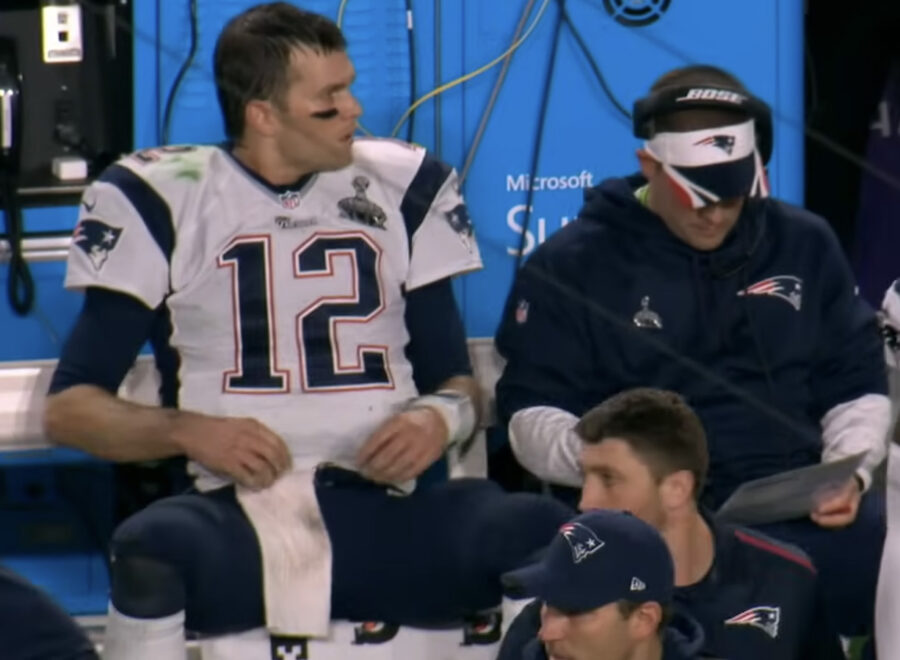This year’s Offsite forced leaders to confront unsettling futures and a way forward we cannot ignore.
I just had dinner with a CEO whom I’ve long admired as one of the most future-focused people I know. He confessed that the last several months have been challenging. “Part of my creative struggle is that I’m future-focused, but I’m not very pumped about the future I see…”
I get it. And he’s not the only one. We seem to be in a tough spot these days: as a market, as an economy, as a society, and as a people. But I do wish that my friend could see the other side of the story. And I wish he could have joined us at the Jump Offsite.
Every year, we bring together a select group of business leaders in Napa to take stock of what’s happening, what might happen, and what we can do about it. The mornings were packed with talks from leading thinkers in business, technology, and culture. We got to meet market disrupters like Anders Jones of Facet and Diana Williams of Kinetic Entertainment. Anders is disrupting financial services. Diana is doing the same for Hollywood.
The afternoons were reserved for small group deep dives to share challenges with peers in a safe space. This year’s Offsite was equal parts terrifying and galvanizing. People didn’t love the futures they saw. But they also felt a calling to do something about it. Most of what we learned has to remain confidential. Still, there were a few powerful takeaways that I think we all need to hear.
As you can imagine, artificial intelligence was a huge part of the conversation. But that conversation spent little time on the tactical use cases that many companies are playing around with. Yes, AI will help you craft a letter, and it can help summarize your emails. But the promise is so much bigger. And so are the threats.
Thinking about how you’re thinking…
›
Shannon Heald is a cognitive psychologist at the University of Chicago. When people talk about using AI as a thought partner, she has more than a civilian’s definitions of what “thought” means and what “partner” means. And while large language models are able to simulate cognition, they stumble when asked to demonstrate metacognition—thinking about how they’re thinking. But that’s what a real thought partner does. They push back on you. They evaluate trade-offs. And they help you refine your goals. That requires more than knowledge. It requires wisdom. And depending on unwise machines to guide your decisions has already started to have some scary outcomes.
For the first time in human history, your intelligence will no longer be critical to your survival. What happens then?
›
Zack Kass, who ran Go-to-Market at OpenAI, made a compelling argument for why we are poised to enter a new renaissance—a flourishing of art, science, and society. As he sees it, we are building machines that are intellectual superiors to their creators. Scientific breakthroughs will come fast. Society will get better. AI has already helped us to discover the first new antibiotic in 60 years. As he sees it, the real question is how we reimagine our role as human beings. For the first time in human history, your intelligence will no longer be critical to your survival. What happens then? Will we evolve into idiots when there’s no evolutionary pressure to be smart?
Solitude is the experience of being all alone and being okay with it.
›
The problem is compounded by declines in sociality and mental health that we’re already experiencing in the digital age. Even as he envisioned a beautiful future, Zack exhorted us to get off our phones and start meeting people again. Author Derek Thompson followed on with detailed evidence from multiple sources about why we’re living in an age of solitude. Solitude, mind you, not loneliness. Loneliness is the healthy emotion that nudges us to get off the couch and go be with people. Solitude is the experience of being all alone and being okay with it. And solitude is killing us softly.
There’s a roughly 10% chance that, before this happens, AI will cause a Chernobyl-level catastrophic event.
›
Of course, Stuart Russell painted an even darker picture. Professor Russell wrote the core textbook on AI that every computer science major uses. He’s worked with the United Nations to create the global monitoring system for the Comprehensive Nuclear-Test-Ban Treaty. And he’s been working on artificial intelligence for fifty years. I share all this to say that, when it comes to this technology, Professor Russell knows what he’s talking about.
Stuart Russell is convinced that there is exactly zero percent chance that this will end well.
He estimates a 70% likelihood that progress in artificial intelligence will stall for reasons that we have yet to discover. We’ll enter an AI ice age. This will lead to market meltdowns and cascading economic hardship as global wealth implodes. That includes your 401k, too.
To be sure, there’s a chance that we can continue to make the kind of technological breakthroughs that we’ve been making. Stuart sees a 20% chance that progress will continue until AI achieves superhuman intelligence. This will lead to a total loss of human control and the potential end of humanity.
But all is not lost. There’s a roughly 10% chance that, before this happens, AI will cause a Chernobyl-level catastrophic event. Millions will die, but society will finally get serious about creating adequate fail-safes for this new technology. That outcome would actually cause the least pain to the fewest people.
Friends, it’s bad news when you’re hoping for Chernobyl…
How to solve something big…
›
At this point, one might be tempted to throw in the towel. To go gently into that good night. But things can get better. I was heartened by the time I got to spend with Anousheh Ansari. I’ve written about her before. Growing up as a young girl in Iran, she lived through a bloody revolution and a horrific war. It might have seemed fanciful to grown-ups that she’d ever achieve her childhood dream of becoming an astronaut and going to space. The fact that she did it should make us wonder why our own obstacles seem so insurmountable. Today, Anousheh is the CEO of the XPRIZE Foundation, an organization that has helped solve massive social problems by setting grand challenges for teams to compete and solve. If you’re thinking about how to solve something big, you probably should be talking to Anousheh.
›
Valarie Kaur, founder of the Revolutionary Love Project, reminded us that we simply cannot abandon our post. As you read this, your neighbors are being rounded up in the streets and thrown in cages without due process. People are being disappeared. Not in some banana republic. In the United States of America. We can’t turn away. Now is when we need to heed the call.
Artificial intelligence. Increasing solitude. Rampant inequality. Social upheaval. Market disruption… the list went on and on. And yet, in there was hope. At the end of our time in Napa, I had a conversation with Bill Hayden, head of strategy at Universal Resorts. “You know what all this means, right?” he said. “It means it’s time to reclaim our humanity.”
You know what all this means, right? It means it’s time to reclaim our humanity.
›
Bill’s an incredibly smart guy. And he’s totally right.
I love the Jump Offsite because I don’t usually learn a lot of new things there. I learn one big thing. And that was it. It’s time to reclaim our humanity. The CEO that I had dinner with is right to not like the future he sees. So, people like him need to change that future. And you and I do, too. New technologies will emerge. We need to make them work for us, not the other way around. Our government will do astounding things. We need to make it work for us, too. And if you’re leading a company, you need to make sure that it’s working for us as well. For quite some time, human beings have been losing our humanity.
It’s time to take it back.

 Dev Patnaik
Dev Patnaik


